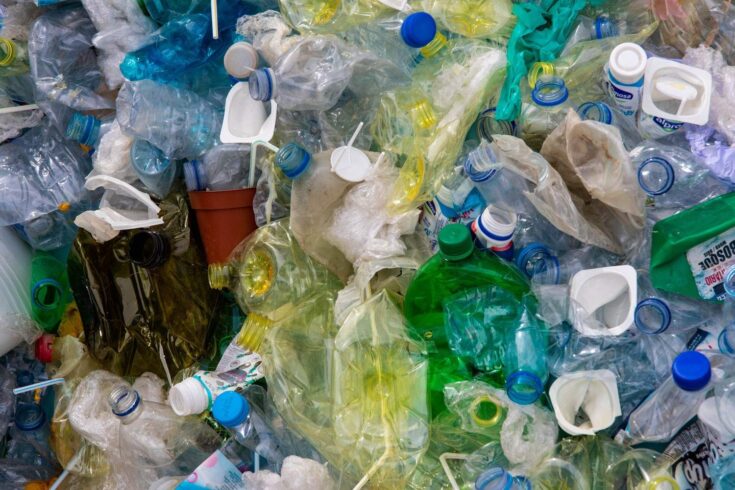Society’s dependence on unrecycled and non-recyclable plastics is causing serious environmental problems, from overflowing landfill sites to ocean pollution. The challenge for the new plastics economy is to understand how more plastic can be recycled, and how it can be done cost-effectively.
Video credit: EPSRC.
On-screen captions and an autogenerated transcript are available on YouTube.
About the project
The UCL Designing-out Plastic Waste project is looking at new ways to recycle plastics from multiple angles.
The project is funded via the £20 million Plastics Research and Innovation Fund, managed by UKRI. The fund is engaging Britain’s best scientists and innovators to help move the country towards more circular economic and sustainable approaches to plastics.
The project has three themes.
The first theme is studying the linear nature of plastics production and use. The intention is to see where plastic can be omitted. Alternatively, if plastic provides value, such as in food packaging that reduces food waste, then a circular economy would try to reuse the packaging.
The second theme is about finding new ways to deal with plastic that is difficult to recycle. The project team is looking for bacteria that eat plastic and to manage them in a controlled environment. They also want to use the enzymes in bacteria to convert biomass-related materials into building blocks for new plastics.
The third theme is about getting the public involved in recording the plastic that ends up in the environment so the team can map it across the UK. It is hoped this will increase awareness and help to reduce the amount of plastic in the environment.
Impacts of the project
The aim of the first theme is to reuse plastics through a continuous process of recycling so as to drastically reduce the amount of plastic waste produced. A circular economy analysis of tree shelters with the Woodland Trust revealed that hundreds of thousands of tonnes of plastic may be diverted from being abandoned in forests, while still hitting the government target of planting two billion trees by 2050.
The second theme found that by using bacteria and enzymes, it will be possible to convert biomass-related materials into cheap and readily available building blocks for new plastics.
Find out more
Visit the Plastic Waste Innovation Hub website.
Top image: Plastic waste. Credit: Magda Ehlers, Pexels

